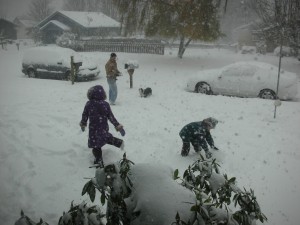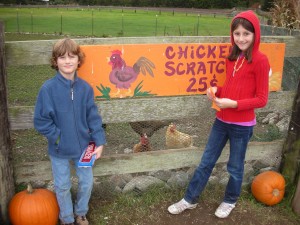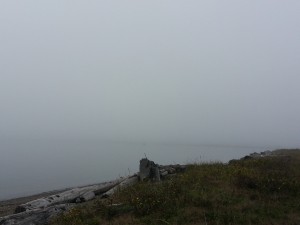
Community Genre
Students will use the colorful intricacies and diversity of their community to tell a story through video. They will communicate a self-chosen genre of their community using images they find that speak to them of the characteristics of that genre. They can choose community landmarks, stores, centers, art displays, various structures, or any other image that fits in with their genre. Then they will tie those images together to create a book trailer. They will use ideas, themes, characters and plot examples from their required reading book to guide them in choosing a genre.
Unit Plan
CCSS–Reading for Literature–Key Ideas and Details
- #1 Cite strong and thorough textual evidence to support analysis of what the text says explicitly as well as inferences drawn from the text.
- #2 Analyze the interactions between individuals, events, and ideas in a text
- #3 Analyze the impact of the author’s choices regarding how to develop and relate elements of a story or drama (where story is set, how the action is ordered, how the characters are introduced and developed)
CCSS–Craft and Structure
- #5 Analyze how an author’s choice concerning how to structure specific parts of a text (e.g., the choice of where to begin or end a story, the choice to provide a comedic or tragic resolution) contribute to its overall structure, meaning as well as its aesthetic impact.
CCSS–Writing Standards–Text Types and Purpose
- #2 Write information/explanatory texts to examine and convey complex ideas, concepts, and information clearly and accurately through the effective selection organization, and analysis of content.
- #3 Write Narratives to develop real or imagined experiences or events using effective technique, well-chosen details, and well-structured event sequences.
CCSS–Production and Distribution of Writing
- #6 Use Technology, including the internet, to produce, publish, and update individual or shared writing products in response to ongoing feedback, including new arguments or information.
- #8 Gather relevant information from multiple authoritative print and digital sources, using advanced searches effectively.
Examples of Book Trailers
Examples of Genre Types
Goals: As a result of this unit, the students will know …
- The characteristics of a genre in literary text and how to apply this to their community
- The process and procedures for using multiple expressive writing formats such as poetry, drama, editorial writing, song lyrics, graphic organizer
- The process and procedures for using visual representations to express a stories ideas, theme, plot, and character and compare it to their community
- The resources available and the process and procedures for using technical mediums of PowerPoint, moviemaker, mp3, Google images, flickr
- The processes and procedures for working in a reader’s and writer’s workshop
- The stages or phases of a writing process
Understandings/Propositions
- Effective readers make connections among the text, themselves, their community, and the world
- The choices the author make when using literary elements will help determine the genre of the story.
- The choices the community members make will help determine the style and flavor of their town.
- There are a variety of ways in which a story can be analyzed, expressed, and presented
- There are a variety of ways in which a communities practices can be analyzed, expressed, and presented
- Effective design and construction of visual and auditory projects enhance the understanding of thoughts and ideas
- The use of technology is a creative and efficient way to produce, share, publish knowledge and ideas.
- Books can be fun to talk about,
- A community’s events can tell a lot about it’s values and practices
Misunderstandings
- The author writes without considering how ideas, theme, plot, and character contribute to the genre of a story.
- The only way to analyze a story is to write essays.
- Technology is only used to “hang out” or “mess around”
- A community does not have its own story to tell
Unit/Essential Questions
- How do the literary elements of, theme, ideas, characters and plot to make inferences to the genre of the story?
- In what ways can I analyze the elements of the story and transfer my conclusion to a visual representation?
- How do I use technology to create images of the story’s genre, theme, ideas, characters and plot?
- What conclusion can I make from the story’s elements to inform my writing?
- How can I structure my ideas and translate them into my writing
Learning Target—Reasoning
Students will be able to…
- Analyze the story’s ideas, themes, characters and plot by using visual representations and written expression to communicate the story’s genre
- Analyze how an author’s choice in structuring specific parts of a text contribute to its over-all meaning by synthesizing key details in a graphic organizers, drawing, and written form,
- Compare and contrast individual events, and ideas in a text by identifying key traits and Classifying examples in a graphic organizers
- Synthesize textual evidence to formulate inferences in the form of poetry, song lyrics and dramatic dialogue
- Research visual representations of the author’s work and ideas through various media formats
Learning Target—Knowledge
- List key elements of a story’s structure and transfer the list into a visual representations
- Identify pictures and research data from on online source
Learning Target—Product
- Summarize the events of the story by using an artistic medium in the form of poetry, graphic organizers, drawings, dramatic dialogue, musical lyrics, and drawings
- Create a book trailer using video and editing software to express the literary elements that contributed to the story’s genre
- Create an author poster using images found online and created through graphic artistry
- Use text and visual images in a PowerPoint presentation to express themes, ideas, characters or plot of the story
- Use photos and write a song using digital voice recorder or any other sound-generating device to express the themes, ideas, characters and plot of the story
Assessment Evidence of Learning
Formative Assessments
- Journals
- Flexible grouping
- Mini-sessions and coaching
- Socratic Seminars
- Tiered assignments
- Whole class discussion
Summative Assessments:
-
Create a community book trailer using video
and editing software - Community book trailer will use the book to communicate a specific genre
- Video will be published on website





Pingback: Technology Genrelized to Your Community | Investigations in Our Town